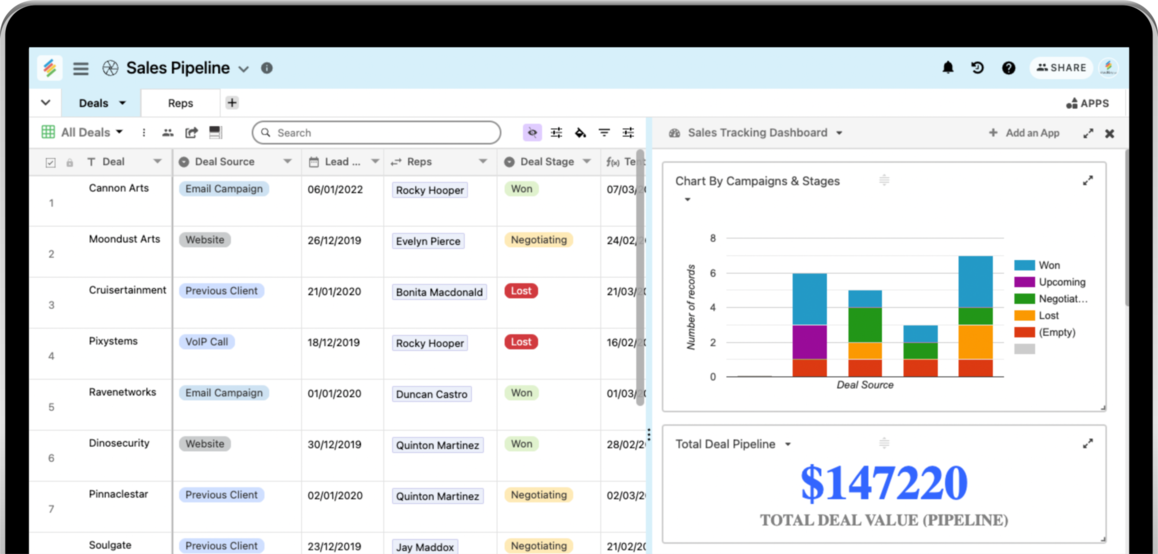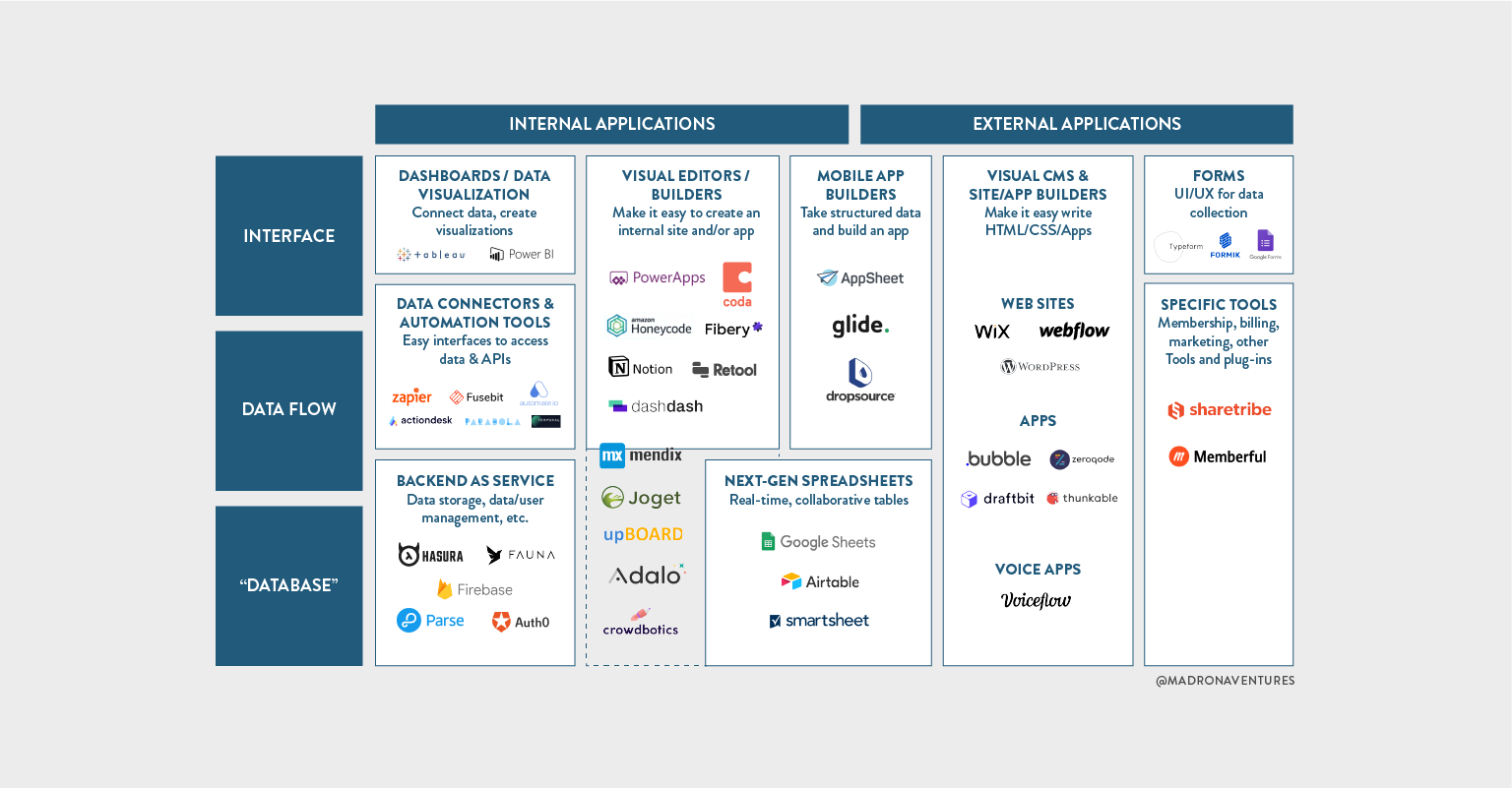No-Code Open Platform Database Development: Encouraging Businesses to Build Faster
Discover Exactly How Scalable Databases Can Be Made Use Of Without Coding to Enhance Your Organization Operations
In today's fast-paced service atmosphere, the ability to take care of and assess data successfully is critical. Scalable databases, particularly when paired with no-code services, provide a transformative strategy that empowers non-technical customers to improve procedures. By employing tools that call for no coding proficiency, organizations can boost their operational capabilities while minimizing dependancy on IT sources. The actual inquiry lies in recognizing exactly how these solutions can be tailored to specific service needs and what prospective hurdles might occur in their execution. Exploring these elements can illuminate the path to functional quality.
Comprehending Scalable Data Sources
Scalable databases are necessary for modern-day business procedures, allowing companies to efficiently take care of enhancing volumes of information without sacrificing performance. These databases are made to adjust and expand to the transforming demands of a business, making sure that they can take care of larger datasets and more intricate queries as organizational requirements evolve.
Recognizing scalable data sources entails recognizing their 2 key kinds: vertical scaling and horizontal scaling. Vertical scaling, or "scaling up," involves adding more power (CPU, RAM) to an existing web server to boost efficiency. Conversely, horizontal scaling, or "scaling out," entails including much more web servers to disperse the lots, which typically causes greater flexibility and fault tolerance.
Another crucial element is the style of scalable data sources, which can be either non-relational or relational. Relational data sources, such as MySQL and PostgreSQL, are structured and make use of SQL for questions, while non-relational databases, like MongoDB and Cassandra, provide more flexibility with unstructured data.
Inevitably, understanding scalable databases is important for companies aiming to leverage information as a strategic asset, enabling them to continue to be affordable in a significantly data-driven atmosphere.

Advantages of No-Code Solutions
Opening the potential of no-code services encourages organizations to enhance procedures and boost productivity without the requirement for substantial programs knowledge. These systems enable non-technical customers to produce, customize, and handle databases easily, therefore democratizing accessibility to technology across groups.
One of the key benefits of no-code remedies is their speed of application. Services can rapidly release applications and automate procedures, considerably minimizing the moment invested on growth cycles. This agility enables organizations to respond quickly to market modifications and customer demands, fostering a competitive edge.
Additionally, no-code platforms decrease dependence on IT departments for everyday tasks, allowing technical teams to concentrate on even more complex projects that call for specialized abilities. This change not just optimizes resource allotment but also advertises technology within the organization.
Cost-effectiveness is an additional benefit, as no-code remedies can decrease growth and upkeep costs. By lessening the demand for coding knowledge, companies can harness the capabilities of their existing labor force without the expenses of hiring extra personnel.
Popular No-Code Database Devices
The increase of no-code services has resulted in the introduction of different database devices that deal with companies seeking performance and accessibility. These tools encourage users with limited technological competence to develop, handle, and manipulate databases effortlessly.

Caspio stands out for its ability to construct internet applications without any type of coding. It enables organizations to develop durable databases and deploy applications promptly, satisfying various sector requirements. Knack uses straightforward find here interfaces and effective data monitoring capabilities, enabling companies to build personalized applications tailored to their operations.

Usage Instances in Organization Procedures
Just how can services take advantage of data source devices to improve their operations? Scalable databases provide companies with effective capacities to take care of and examine data without the need for comprehensive coding understanding. These tools can streamline various business processes, inevitably bring about boosted performance and performance.
One famous usage situation is customer partnership administration (CRM) Companies can utilize scalable databases to track customer communications, preferences, and feedback, enabling tailored communication and better solution. By systematizing this info, groups can team up better and react to client needs in real-time.
Another substantial application is inventory monitoring. Firms can employ no-code database devices to keep an eye on supply degrees, track shipments, and projection demand. This makes certain optimum inventory degrees, reduces waste, and lessens stockouts.
In addition, job administration can take advantage of scalable databases by enabling teams to manage jobs, target dates, and sources in a combined system. With real-time updates and information visualization, job managers can make educated choices.
Obtaining Started With Execution
Carrying out scalable data sources in organization procedures needs an organized approach to guarantee successful combination and utilization. The very first step is to conduct a complete needs analysis, identifying certain organization requirements, data types, and anticipated development patterns. This fundamental understanding will assist the option of the appropriate database service.
Next, select a straightforward, no-code data source platform that lines up with your functional objectives. no-code. Several modern-day solutions provide user-friendly user interfaces, permitting non-technical customers to take care of information effectively. After selecting a platform, develop a clear information design that details exactly how information will be organized, accessed, and kept
Training is crucial; make sure that employee are outfitted with the needed abilities to utilize the database. Think about supplying tutorials or workshops to familiarize staff with the system's functionalities.
Final Thought
To conclude, the integration of scalable databases through no-code remedies offers substantial advantages for organization procedures. These systems encourage non-technical individuals to effectively handle and examine data, assisting in enhanced decision-making and partnership. By adopting devices such as Airtable and Concept, companies can minimize and improve procedures dependence on IT sources. Ultimately, leveraging these modern technologies can cause improved performance and operational efficiency, placing look at here now services for continual growth in a competitive landscape.
One preferred no-code database device is article Airtable, which combines the performance of a spread sheet with the power of a database.Just how can companies utilize database tools to boost their operations? Services can make use of scalable data sources to track customer interactions, choices, and responses, allowing personalized communication and far better service.Implementing scalable databases in service operations needs an organized approach to ensure effective combination and usage.In final thought, the assimilation of scalable databases through no-code services offers significant benefits for service procedures.